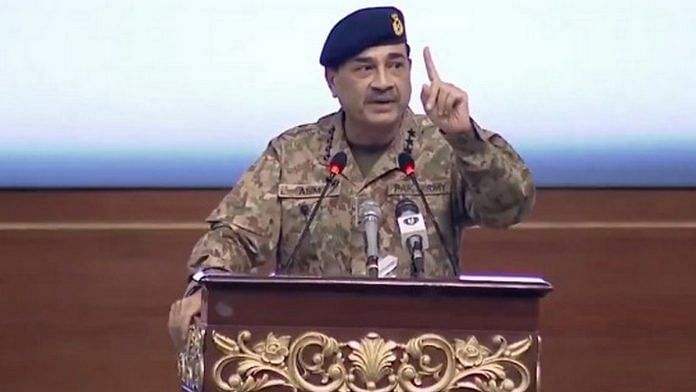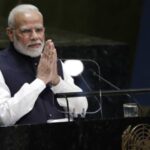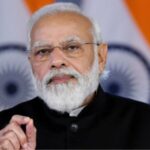Pakistan’s new reality is that traditional military nationalism is back in business. This doesn’t mean that those who voted for Imran Khan or wanted him to be at the helm of affairs have abandoned him; it just means that they are not belligerent toward the military anymore. For this crowd, the desire is to see a reconciliation that could bring Khan back to power without necessarily seeing the army out of power.
Munir is certainly a beneficiary of the conflict. The general can no longer be seriously challenged by Imran Khan as he is now the new hero. Notwithstanding the diverse assessment of gains during the conflict on both sides of the border, the Pakistan Air Force’s performance in particular has built Munir’s image. The army chief and his team are neither deterred by India’s response nor worried about being touted domestically for cowing down. As some of the young people I spoke with recently said, people are now more tolerant of the idea that what Pakistan needs for its survival is a strong military. In fact, one of the new issues that Munir faces is who to support more, the PML-N that has definitely benefited from the conflict in terms of improvement of its image in Punjab, or Asif Zardari and his Pakistan People’s Party, which was equally at the forefront in supporting his efforts.
There is something that has fundamentally changed in Pakistan’s political scene—not a single political party is willing to paint the army as outsiders or contest its demand for a greater share of resources. As journalist and commentator on economic issues, Khurram Hussain pointed out in his recent article, the military will now expect an increase in its budget, and that will not be criticised but accepted because the conflict has built a case for beefing up the military’s capacity. The bulk of Pakistan is back to considering defence spending as a public good necessary for the country’s existential survival. What goes without saying is that this change in thinking will lead to all the criticism that was earlier seen regarding the military’s expanded control of the economy and its business interests falling quiet.
Here is a changed scenario in which the old and the new parties across the ideological spectrum, be it Left, Centre or the Right, cannot question the new narrative—of the military as saviour of the state with a demonstrable capacity to protect itself against a bigger neighbour. Politically, there is very little space for dissident voices, which means that the PTI can no longer depend on the narrative of Imran Khan being the only leader with the capacity to put the military in order. Given that the conflict was more intense than in 2019 and the military was able to say that it could push back successfully, any questioning of its institutional power would be out of order.
Not surprisingly, since the conflict, Pakistan’s social media has also gone relatively silent on even other more tricky issues like the grievance of Sindhi nationalists on the domestic water crisis or the condition of the Baloch people or the treatment of Pashtuns. Most likely, people now talking about these issues will get trolled or, at best, ignored.
This brings me to a suggestion from friends, who have had a deeper look at Pakistan’s nationalism narrative prior to the conflict. During our conversations about the military’s unpopularity, I recall their argument that it is skin-deep and that the issue of the political dissidents, especially those who opposed the military because of Imran Khan, would turn around as quickly as they started if conditions changed. Of course, the argument was then in the light of Imran Khan mending fences with the GHQ and being given an opportunity to play a role. The present moment is even more intense. The fact is that once the conflict started, it was clear to many that the army got an opportunity to get back into the driving seat. This doesn’t mean that problems will not emerge, but thus far, it has managed to solve its image problem just like it managed to do many other times in the past.
(Edited by Theres Sudeep)








